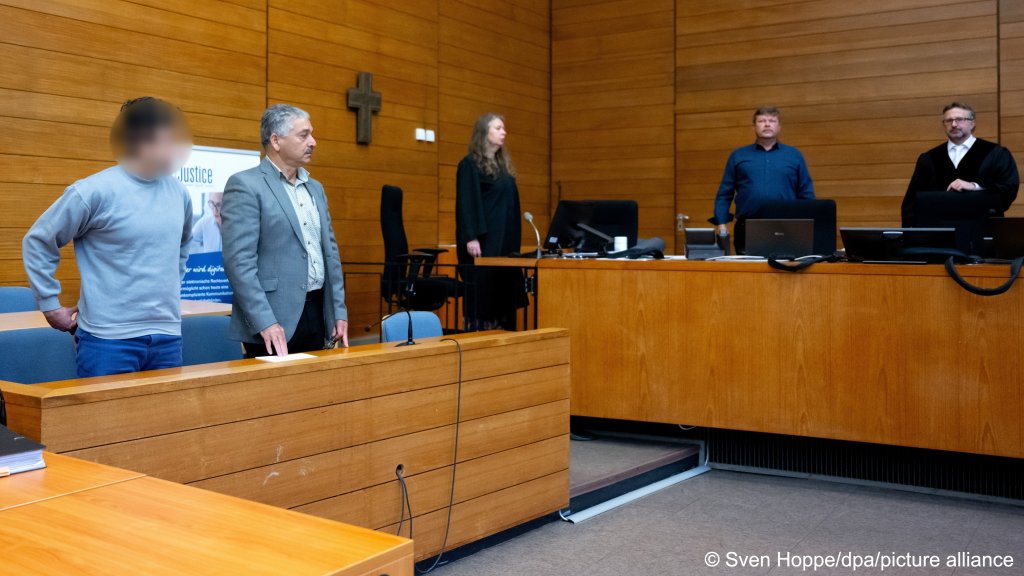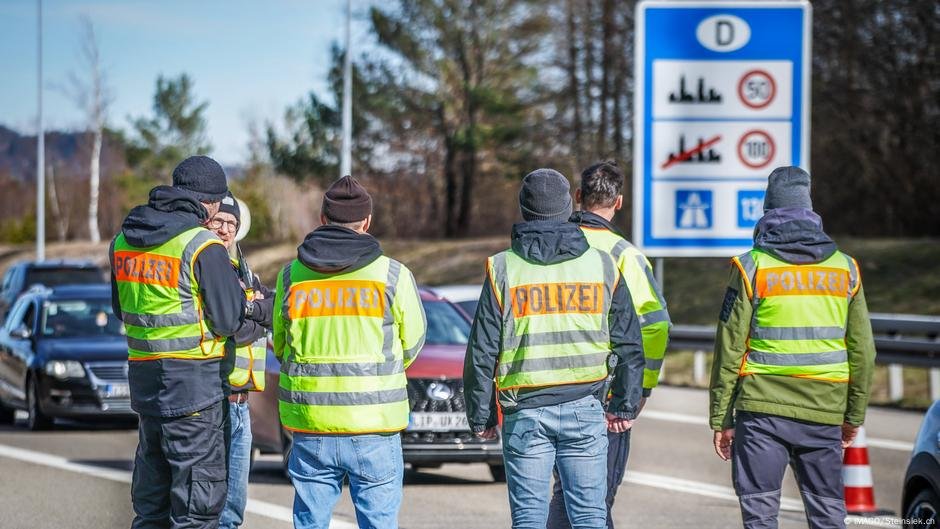A German court has sentenced a man to 15 years in prison for causing a minibus crash that killed seven migrants last year. Rights groups raise concerns that restrictive border control policies could lead migrants to more perilous routes -- with fatal consequences.
A German court has sentenced a man to 15 years in prison for his involvement in a minibus accident that killed seven people, including a child, last year, the news agency Agence France Presse reported Thursday (November 5).
The court in Bavaria, southern Germany, sentenced the man, who has been identified in news reports as Samar A.O., for negligent homicide and people smuggling with fatal consequences. The man, who is reportedly Syrian, was driving a Mercedes van crammed with 22 people who were attempting to cross the Germany-Austria border. The passengers were reportedly from Turkey and Syria.
The convicted man is reported to have sped up to 180 miles per hour to avoid the road check in the Bavaria region close to the Austrian border. He lost control, causing the vehicle to flip over several times before crashing. Photos from news reports show the van as a crumpled heap of metal. The wreckage reportedly blocked the motorway to Munich for several hours.
The seven dead included a six-year-old child, while other passengers suffered injuries including one who was purported to have been left with permanent brain damage. The convicted man survived the accident with only minor injuries.
Prosecutors had called for the man, who was 24 at the time of the accident, to be convicted of murder and handed a life sentence.
Three other defendants, accused of helping the convicted man by scouting the area for police patrols, are also on trial.
Read AlsoCroatia: 14 injured in suspected human trafficking van crash

Tightening border controls
The accident, which occurred in October last year, came amid an increase in irregular arrivals and asylum claims in Germany which reignited a fierce immigration debate.
Government statistics indicate that by the end of 2023, nearly 3.2 million people were seeking protection in Germany, a rise of about 100,000 from the previous year, Germany, which continues to lead the EU in total protection seekers, saw the largest numbers from Ukraine (977,000), followed by Syria (712,000, up 6 percent) and Afghanistan (323,000, up 13 percent), according to the Federal Office for Statistics.
Amidst pressure to manage irregular entries, Germany progressively instituted several measures that included tightening border controls with all its neighboring countries and curbing benefits for asylum seekers.
Read AlsoGermany: Number of refugees reaches new high in 2024

Pushing more dangerous routes
Migrant rights groups warn that policy shifts and stricter border controls push people on the move to seek alternative routes -- or a mix of air, land, and sea -- to evade detection. Each pathway presents significant dangers and risks to those undertaking the journey.
Rights group No Name Kitchen has, for example, criticized the closure of migrant reception routes along the Western Balkan Route, claiming that this pushes migrants toward more dangerous alternatives.
Data from the International Organization for Migration (IOM) reveals that, with the exception of the Mediterranean Sea routes and the Atlantic route to the Canary Islands, most migrant deaths en route to or within Europe have been due to vehicle accidents. Since 2014, IOM’s Missing Migrants Project has recorded 1,242 deaths, with 557 resulting from hazardous transport methods. Without regular migration pathways, migrants must rely on smugglers who prioritize profit over safety.
According to research by the medical journal The Lancet, an estimated 1.35 million people die every year from road traffic injuries and more than 50 million are injured or disabled.
